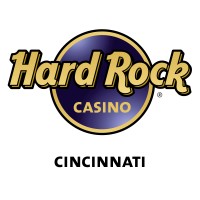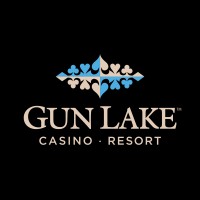Company Details
hardrockcincinnati
292
2,994
7132
hardrock.com
0
HAR_2540960
In-progress

Hard Rock Casino Cincinnati Company CyberSecurity Posture
hardrock.comThe Queen City of the Midwest, Cincinnati, Ohio, is now home to Hard Rock Casino Cincinnati. Hard Rock Casino Cincinnati opened on 10/29/2021. Set on 22 acres of land in Pendleton's trendy neighborhood, it is five minutes north of the Ohio River, two major league sports stadiums, and ample shopping in OTR. With restaurants to satisfy everyone's taste pallets in your group, including a Hard Rock Cafe. The Hard Rock Casino Cincinnati is owned and operated by Hard Rock. Employees at the Hard Rock Casino Cincinnati are employed by Hard Rock. We are committed to fostering diversity, equity, and inclusion. DE&I aims to address the needs of all team members - including Native Americans, women, LGBTQ+ community, people of color (BIPOC), people with disabilities and military veterans. Diversity: is the celebration of differences and leveraging those differences to produce stellar results. Equity: is a process of seeking fairness through deliberate and intentional actions. Inclusion: is when everyone has the freedom and comfort to express their thoughts ides, and options in a safe, trusting, and open environment. Must be 21 or older to gamble. Gambling Problem? Call 1-800-589-9966.
Company Details
hardrockcincinnati
292
2,994
7132
hardrock.com
0
HAR_2540960
In-progress
Between 750 and 799

 HRCC Global Score (TPRM)
HRCC Global Score (TPRM)XXXX

Description: The California Office of the Attorney General reported a data breach involving Hard Rock Hotel & Casino on April 30, 2015. The breach may have allowed unauthorized access to credit and debit card information used at certain hotel retail and service locations between September 3, 2014, and April 2, 2015, potentially affecting customer names, card numbers, and CVV codes, but not PIN numbers. The total number of individuals affected by the breach is unknown.
Description: The California Office of the Attorney General reported a data breach involving Hard Rock International on July 7, 2017. The breach occurred on May 17, 2017, and was attributed to unauthorized access to payment card information and reservation details via Sabre Hospitality Solutions, with potential exposure of guest names, email addresses, and other visit-related information.
Description: The Hard Rock and Loews hotel chains alerted patrons to security breaches; the issues are connected to a hack of the Sabre company's SynXis network. Payment card information for a "small subset" of clients who made bookings using the SynXis platform which was supplied by outside vendor Sabre Hospitality Solutions was obtained by thieves. After taking control of an internal account on the SynXis system, the hackers were able to access the system. The conclusion of the inquiry into the Hard Rock Hotels and Casinos franchise breach. The Federal Trade Commission and the company's consumers were informed of the event.
Description: The Hard Rock Hotel & Casino Las Vegas suffered a **payment card breach** caused by **unauthorized access via card-scraping malware**. The incident, reported by the California Office of the Attorney General, exposed payment card data of guests who made transactions at the hotel between **October 27, 2015, and March 21, 2016**. While the exact number of affected individuals and the specific types of compromised information (e.g., card numbers, CVV, or personal details) remain undisclosed, the breach highlights a **financial and reputational risk** due to potential fraudulent transactions or misuse of payment data. The attack was executed through malware designed to **steal card details during processing**, a common tactic in cybercriminal operations targeting hospitality and retail sectors. The lack of transparency on the scale of the breach further amplifies concerns over the hotel’s data security measures and the potential long-term impact on customer trust.


No incidents recorded for Hard Rock Casino Cincinnati in 2025.
No incidents recorded for Hard Rock Casino Cincinnati in 2025.
No incidents recorded for Hard Rock Casino Cincinnati in 2025.
HRCC cyber incidents detection timeline including parent company and subsidiaries

The Queen City of the Midwest, Cincinnati, Ohio, is now home to Hard Rock Casino Cincinnati. Hard Rock Casino Cincinnati opened on 10/29/2021. Set on 22 acres of land in Pendleton's trendy neighborhood, it is five minutes north of the Ohio River, two major league sports stadiums, and ample shopping in OTR. With restaurants to satisfy everyone's taste pallets in your group, including a Hard Rock Cafe. The Hard Rock Casino Cincinnati is owned and operated by Hard Rock. Employees at the Hard Rock Casino Cincinnati are employed by Hard Rock. We are committed to fostering diversity, equity, and inclusion. DE&I aims to address the needs of all team members - including Native Americans, women, LGBTQ+ community, people of color (BIPOC), people with disabilities and military veterans. Diversity: is the celebration of differences and leveraging those differences to produce stellar results. Equity: is a process of seeking fairness through deliberate and intentional actions. Inclusion: is when everyone has the freedom and comfort to express their thoughts ides, and options in a safe, trusting, and open environment. Must be 21 or older to gamble. Gambling Problem? Call 1-800-589-9966.


Silverton Casino is a hotel and casino in Las Vegas, Nevada that skillfully combines the comfort of an upscale lodge with the casino gaming excitement of Las Vegas. As a full-service Las Vegas casino hotel located minutes from the Strip, Silverton Casino features an array of restaurants, live entert

Station Casinos is the leading provider of gaming and entertainment to the residents of Las Vegas, Nevada. Station's properties are regional entertainment destinations and include various amenities, including numerous restaurants, entertainment venues, movie theaters, bowling and convention/banquet

Snoqualmie Casino, offers 165,000 square feet of gaming space with 1,700 slot machines, 50 table games and 5 poker tables. Guests can dine in 6 restaurants – a 400 seat buffet, an Asian Bistro, a 24 hour cafe, a coffee shop, deli and a 100 seat fine dining restaurant.The casino also features 3 cockt

Desert Diamond Casino offers a convenient, memorable entertainment experience in Tucson, Sahuarita, Why, and our new West Valley Casino in Glendale, Arizona. Amenities include unmatched gaming options, fine dining, the Monsoon Nightclub and world-class sporting events, music concerts and comedy sets

Morongo is the premier gaming resort in California. Located in Cabazon, California, in the scenic Coachella Valley, Morongo is a prime getaway for residents of Orange County, Ontario, Palm Springs, Palm Desert and Los Angeles. Earning the prestigious AAA Four Diamond Award for Six consecutive years,

Gun Lake Casino Resort is West Michigan’s top destination for luxury stays, gaming, entertainment, and dining! Located just off Exit 61 on U.S. 131 between Grand Rapids and Kalamazoo, we offer an elevated resort experience you won’t find anywhere else in the region. Guests can play over 2,300 slot
.png)
Thinking about whether Palo Alto Networks is a buy right now? If you have even a hint of curiosity about the stock's value,...
By Juliet ETEFE ([email protected]) Virtual Infosec Africa (VIA), in partnership with global cybersecurity firm Exabeam, has launched Ghana's...
Mohit Chawla, Deputy Inspector General (DIG) of Himachal Pradesh Police, has been honoured with the Chief Information Security Officer...
CINCINNATI (WXIX) -As Black Friday weekend approaches, cybersecurity experts are warning shoppers about increased online scams targeting...
There have been a lot of updates in privacy and cybersecurity in the last month. Read on to find out what they are.
As the social media ban for kids under 16 approaches, popular messaging app Snapchat says young people will be able to verify their age by...
Zero Trust Architecture (ZTA) is the future of cybersecurity — it is more than just a catchphrase, but recognizes that “there is no user or...
A 15‑year‑old in Jordan who goes by the handle “Rey” online has been allegedly identified as a key figure in the hacking crew Scattered...

Explore insights on cybersecurity incidents, risk posture, and Rankiteo's assessments.
The official website of Hard Rock Casino Cincinnati is https://casino.hardrock.com/cincinnati.
According to Rankiteo, Hard Rock Casino Cincinnati’s AI-generated cybersecurity score is 767, reflecting their Fair security posture.
According to Rankiteo, Hard Rock Casino Cincinnati currently holds 0 security badges, indicating that no recognized compliance certifications are currently verified for the organization.
According to Rankiteo, Hard Rock Casino Cincinnati is not certified under SOC 2 Type 1.
According to Rankiteo, Hard Rock Casino Cincinnati does not hold a SOC 2 Type 2 certification.
According to Rankiteo, Hard Rock Casino Cincinnati is not listed as GDPR compliant.
According to Rankiteo, Hard Rock Casino Cincinnati does not currently maintain PCI DSS compliance.
According to Rankiteo, Hard Rock Casino Cincinnati is not compliant with HIPAA regulations.
According to Rankiteo,Hard Rock Casino Cincinnati is not certified under ISO 27001, indicating the absence of a formally recognized information security management framework.
Hard Rock Casino Cincinnati operates primarily in the Gambling Facilities and Casinos industry.
Hard Rock Casino Cincinnati employs approximately 292 people worldwide.
Hard Rock Casino Cincinnati presently has no subsidiaries across any sectors.
Hard Rock Casino Cincinnati’s official LinkedIn profile has approximately 2,994 followers.
Hard Rock Casino Cincinnati is classified under the NAICS code 7132, which corresponds to Gambling Industries.
No, Hard Rock Casino Cincinnati does not have a profile on Crunchbase.
Yes, Hard Rock Casino Cincinnati maintains an official LinkedIn profile, which is actively utilized for branding and talent engagement, which can be accessed here: https://www.linkedin.com/company/hardrockcincinnati.
As of November 27, 2025, Rankiteo reports that Hard Rock Casino Cincinnati has experienced 4 cybersecurity incidents.
Hard Rock Casino Cincinnati has an estimated 895 peer or competitor companies worldwide.
Incident Types: The types of cybersecurity incidents that have occurred include Breach and Cyber Attack.
Detection and Response: The company detects and responds to cybersecurity incidents through an communication strategy with informed federal trade commission and consumers, and .
Title: Sabre SynXis Network Breach
Description: The Hard Rock and Loews hotel chains alerted patrons to security breaches; the issues are connected to a hack of the Sabre company's SynXis network. Payment card information for a 'small subset' of clients who made bookings using the SynXis platform which was supplied by outside vendor Sabre Hospitality Solutions was obtained by thieves. After taking control of an internal account on the SynXis system, the hackers were able to access the system. The conclusion of the inquiry into the Hard Rock Hotels and Casinos franchise breach. The Federal Trade Commission and the company's consumers were informed of the event.
Type: Data Breach
Attack Vector: Compromised Internal Account
Vulnerability Exploited: Internal Account Compromise
Motivation: Financial Gain
Title: Hard Rock Hotel & Casino Data Breach
Description: The California Office of the Attorney General reported a data breach involving Hard Rock Hotel & Casino on April 30, 2015. The breach may have allowed unauthorized access to credit and debit card information used at certain hotel retail and service locations between September 3, 2014, and April 2, 2015, potentially affecting customer names, card numbers, and CVV codes, but not PIN numbers. The total number of individuals affected by the breach is unknown.
Date Detected: 2015-04-30
Date Publicly Disclosed: 2015-04-30
Type: Data Breach
Title: Hard Rock International Data Breach
Description: The California Office of the Attorney General reported a data breach involving Hard Rock International on July 7, 2017. The breach occurred on May 17, 2017, and was attributed to unauthorized access to payment card information and reservation details via Sabre Hospitality Solutions, with potential exposure of guest names, email addresses, and other visit-related information.
Date Detected: 2017-05-17
Date Publicly Disclosed: 2017-07-07
Type: Data Breach
Attack Vector: Unauthorized Access
Title: Payment Card Incident at Hard Rock Hotel & Casino Las Vegas
Description: The California Office of the Attorney General reported that Hard Rock Hotel & Casino Las Vegas experienced a payment card incident, with the investigation identifying unauthorized access due to card scraping malware. The breach potentially affected cards used at the hotel between October 27, 2015, and March 21, 2016. The specific number of affected individuals and detailed types of information compromised are unknown.
Type: Payment Card Breach / Malware Attack
Attack Vector: Card Scraping Malware
Common Attack Types: The most common types of attacks the company has faced is Breach.
Identification of Attack Vectors: The company identifies the attack vectors used in incidents through Internal Account Compromise.

Data Compromised: Payment Card Information
Systems Affected: SynXis Network
Payment Information Risk: True

Data Compromised: Customer names, Card numbers, Cvv codes
Payment Information Risk: True

Data Compromised: Guest names, Email addresses, Visit-related information, Payment card information, Reservation details
Payment Information Risk: True

Data Compromised: Payment card information
Systems Affected: Point-of-Sale (POS) Systems
Identity Theft Risk: Potential (due to payment card exposure)
Payment Information Risk: High
Commonly Compromised Data Types: The types of data most commonly compromised in incidents are Payment Card Information, Customer Names, Card Numbers, Cvv Codes, , Guest Names, Email Addresses, Visit-Related Information, Payment Card Information, Reservation Details, , Payment Card Data and .

Entity Name: Hard Rock Hotels and Casinos
Entity Type: Hospitality
Industry: Hotel and Casino
Customers Affected: Small subset

Entity Name: Hard Rock Hotel & Casino
Entity Type: Hospitality
Industry: Hospitality

Entity Name: Hard Rock International
Entity Type: Company
Industry: Hospitality

Entity Name: Hard Rock Hotel & Casino Las Vegas
Entity Type: Hospitality / Casino
Industry: Hospitality & Entertainment
Location: Las Vegas, Nevada, USA

Communication Strategy: Informed Federal Trade Commission and consumers


Type of Data Compromised: Payment Card Information
Sensitivity of Data: High

Type of Data Compromised: Customer names, Card numbers, Cvv codes
Sensitivity of Data: High

Type of Data Compromised: Guest names, Email addresses, Visit-related information, Payment card information, Reservation details

Type of Data Compromised: Payment card data
Sensitivity of Data: High

Regulatory Notifications: Federal Trade Commission

Regulations Violated: Potential Payment Card Industry Data Security Standard (PCI DSS) violations,
Regulatory Notifications: California Office of the Attorney General

Source: California Office of the Attorney General
Date Accessed: 2015-04-30

Source: California Office of the Attorney General
Date Accessed: 2017-07-07

Source: California Office of the Attorney General
Additional Resources: Stakeholders can find additional resources on cybersecurity best practices at and Source: California Office of the Attorney GeneralDate Accessed: 2015-04-30, and Source: California Office of the Attorney GeneralDate Accessed: 2017-07-07, and Source: California Office of the Attorney General.

Investigation Status: Concluded

Investigation Status: Completed (as per public disclosure)
Communication of Investigation Status: The company communicates the status of incident investigations to stakeholders through Informed Federal Trade Commission and consumers.

Customer Advisories: Informed consumers
Advisories Provided: The company provides the following advisories to stakeholders and customers following an incident: was Informed consumers.

Entry Point: Internal Account Compromise

High Value Targets: Payment Card Data,
Data Sold on Dark Web: Payment Card Data,

Root Causes: Internal Account Compromise

Root Causes: Card Scraping Malware Infection On Pos Systems,
Most Recent Incident Detected: The most recent incident detected was on 2015-04-30.
Most Recent Incident Publicly Disclosed: The most recent incident publicly disclosed was on 2017-07-07.
Most Significant Data Compromised: The most significant data compromised in an incident were Payment Card Information, customer names, card numbers, CVV codes, , Guest names, Email addresses, Visit-related information, Payment card information, Reservation details, , Payment Card Information and .
Most Significant System Affected: The most significant system affected in an incident was Point-of-Sale (POS) Systems.
Most Sensitive Data Compromised: The most sensitive data compromised in a breach were Email addresses, Payment card information, Reservation details, customer names, Guest names, Visit-related information, card numbers, CVV codes and Payment Card Information.
Most Recent Source: The most recent source of information about an incident is California Office of the Attorney General.
Current Status of Most Recent Investigation: The current status of the most recent investigation is Concluded.
Most Recent Customer Advisory: The most recent customer advisory issued was an Informed consumers.
Most Recent Entry Point: The most recent entry point used by an initial access broker was an Internal Account Compromise.
Most Significant Root Cause: The most significant root cause identified in post-incident analysis was Internal Account Compromise, Card scraping malware infection on POS systems.
.png)
Angular is a development platform for building mobile and desktop web applications using TypeScript/JavaScript and other languages. Prior to versions 19.2.16, 20.3.14, and 21.0.1, there is a XSRF token leakage via protocol-relative URLs in angular HTTP clients. The vulnerability is a Credential Leak by App Logic that leads to the unauthorized disclosure of the Cross-Site Request Forgery (XSRF) token to an attacker-controlled domain. Angular's HttpClient has a built-in XSRF protection mechanism that works by checking if a request URL starts with a protocol (http:// or https://) to determine if it is cross-origin. If the URL starts with protocol-relative URL (//), it is incorrectly treated as a same-origin request, and the XSRF token is automatically added to the X-XSRF-TOKEN header. This issue has been patched in versions 19.2.16, 20.3.14, and 21.0.1. A workaround for this issue involves avoiding using protocol-relative URLs (URLs starting with //) in HttpClient requests. All backend communication URLs should be hardcoded as relative paths (starting with a single /) or fully qualified, trusted absolute URLs.
Forge (also called `node-forge`) is a native implementation of Transport Layer Security in JavaScript. An Uncontrolled Recursion vulnerability in node-forge versions 1.3.1 and below enables remote, unauthenticated attackers to craft deep ASN.1 structures that trigger unbounded recursive parsing. This leads to a Denial-of-Service (DoS) via stack exhaustion when parsing untrusted DER inputs. This issue has been patched in version 1.3.2.
Forge (also called `node-forge`) is a native implementation of Transport Layer Security in JavaScript. An Integer Overflow vulnerability in node-forge versions 1.3.1 and below enables remote, unauthenticated attackers to craft ASN.1 structures containing OIDs with oversized arcs. These arcs may be decoded as smaller, trusted OIDs due to 32-bit bitwise truncation, enabling the bypass of downstream OID-based security decisions. This issue has been patched in version 1.3.2.
Suricata is a network IDS, IPS and NSM engine developed by the OISF (Open Information Security Foundation) and the Suricata community. Prior to versions 7.0.13 and 8.0.2, working with large buffers in Lua scripts can lead to a stack overflow. Users of Lua rules and output scripts may be affected when working with large buffers. This includes a rule passing a large buffer to a Lua script. This issue has been patched in versions 7.0.13 and 8.0.2. A workaround for this issue involves disabling Lua rules and output scripts, or making sure limits, such as stream.depth.reassembly and HTTP response body limits (response-body-limit), are set to less than half the stack size.
Suricata is a network IDS, IPS and NSM engine developed by the OISF (Open Information Security Foundation) and the Suricata community. In versions from 8.0.0 to before 8.0.2, a NULL dereference can occur when the entropy keyword is used in conjunction with base64_data. This issue has been patched in version 8.0.2. A workaround involves disabling rules that use entropy in conjunction with base64_data.

Get company history
















Every week, Rankiteo analyzes billions of signals to give organizations a sharper, faster view of emerging risks. With deeper, more actionable intelligence at their fingertips, security teams can outpace threat actors, respond instantly to Zero-Day attacks, and dramatically shrink their risk exposure window.
Identify exposed access points, detect misconfigured SSL certificates, and uncover vulnerabilities across the network infrastructure.
Gain visibility into the software components used within an organization to detect vulnerabilities, manage risk, and ensure supply chain security.
Monitor and manage all IT assets and their configurations to ensure accurate, real-time visibility across the company's technology environment.
Leverage real-time insights on active threats, malware campaigns, and emerging vulnerabilities to proactively defend against evolving cyberattacks.




